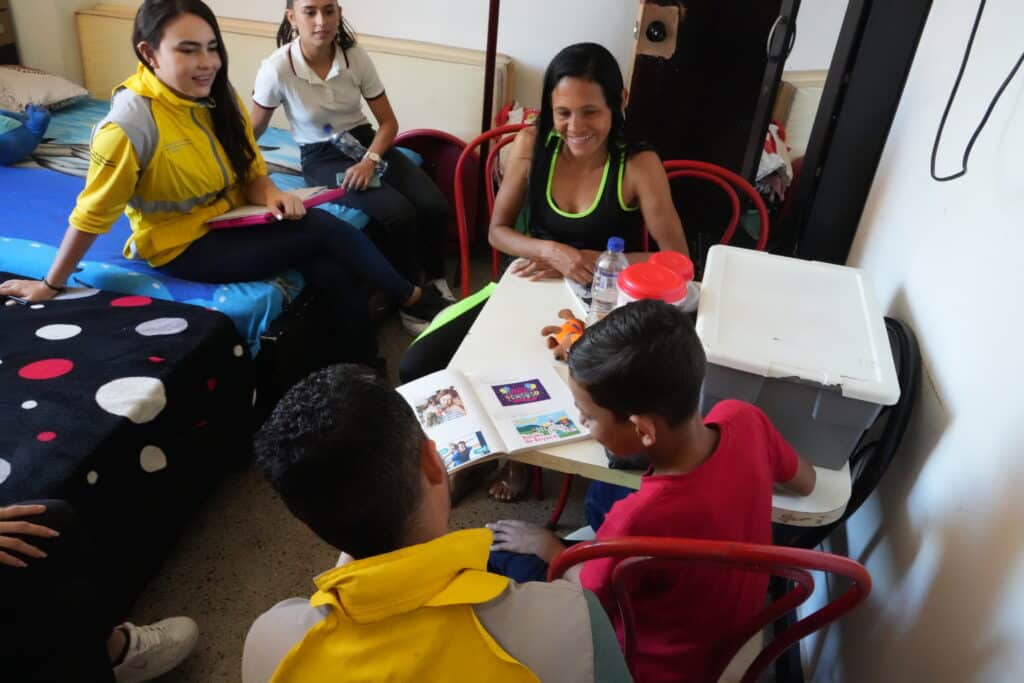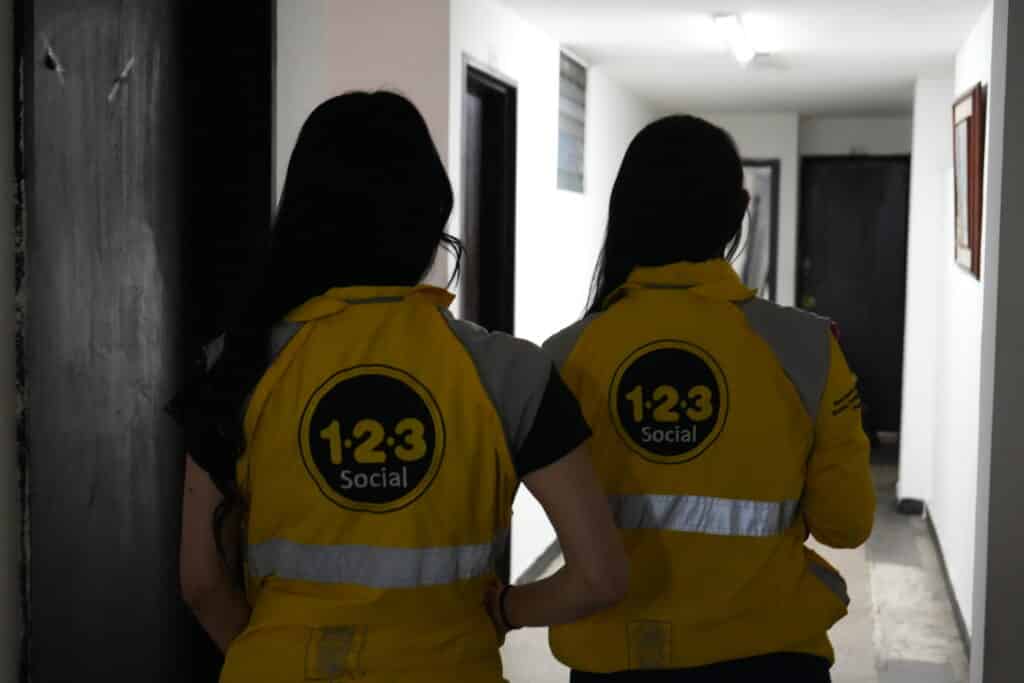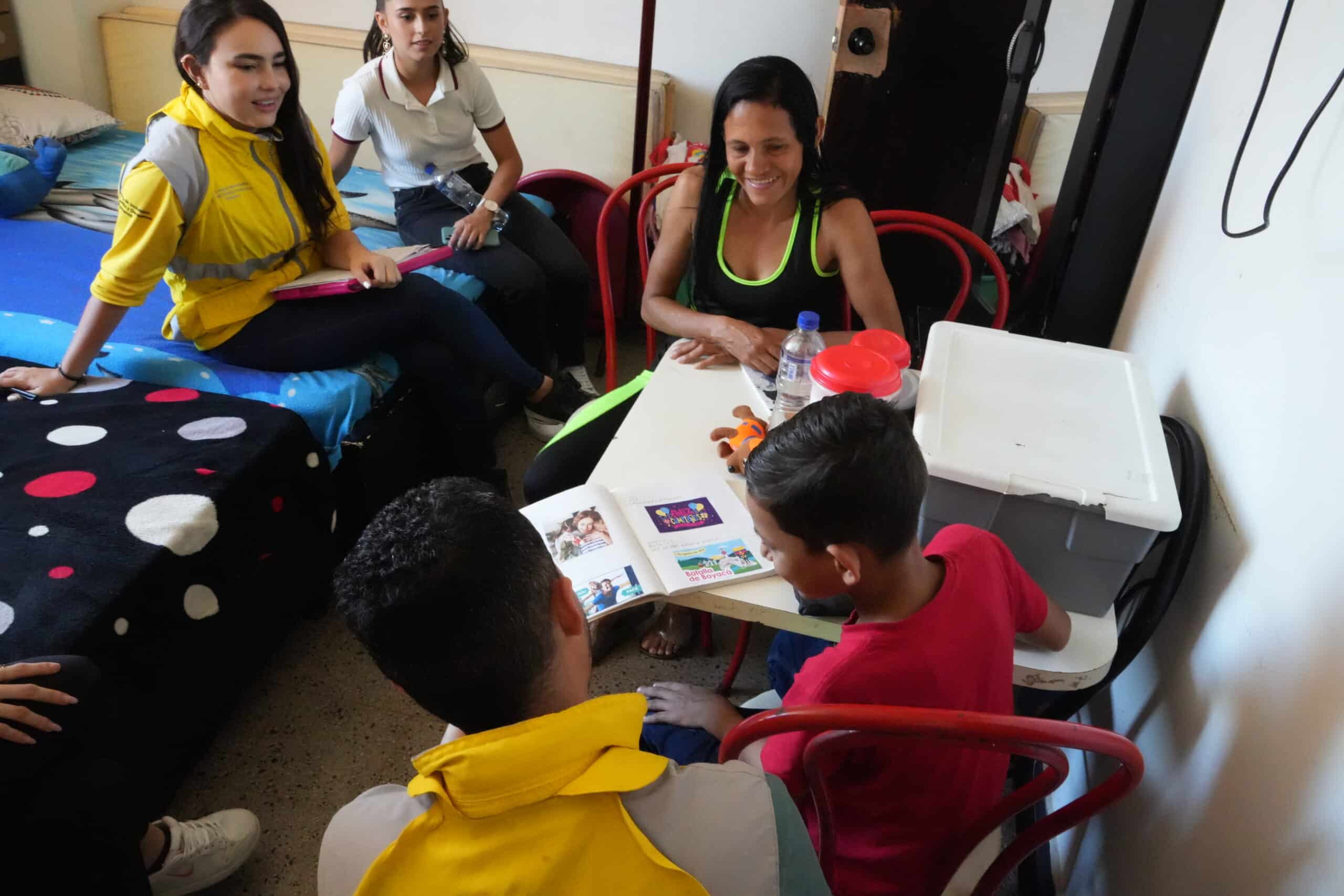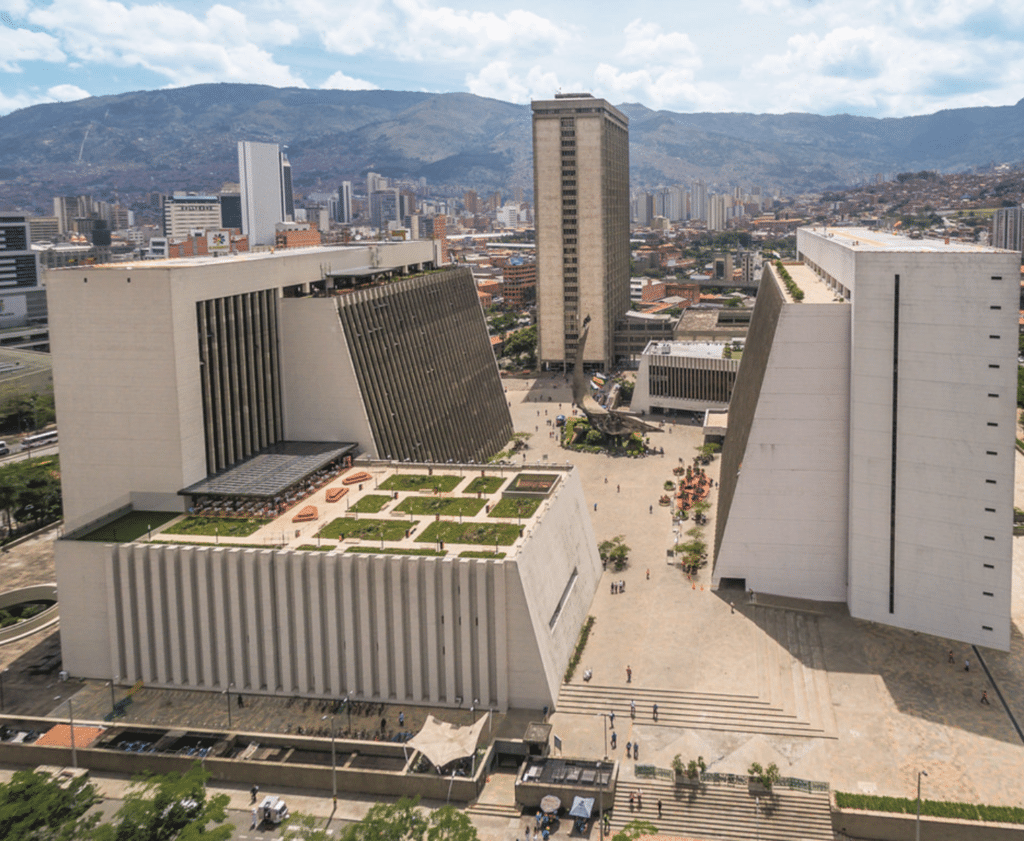Technical assistance to the Mayor’s Office of Medellín, Secretary of Inclusion, Family, and Human Rights
General Info
Supported entity and its role in implementing the program:
-
Secretary of Inclusion, Family and Human Rights of Medellín – outcome payer of the Housing Assistance program
Sector:
-
Livelihoods
The entity’s point of contact:
-
Jaqueline Marin – jaqueline.marin@medellin.gov.co
Instiglio’s point of contact:
-
Santiago Ospina – santiago.ospina@instiglio.org
Type of support provided by Instiglio:
-
RBF mechanism design
Executive Summary
In 2012, the Secretary of Inclusion, Family, and Human Rights of Medellín developed the program Emergency Attention to support vulnerable populations going through natural, human-caused, or social emergencies. The program generally consists of helping this population generate their own income and savings, providing them with effective access to inter-institutional social services, improving the existence of support networks, and offering psychosocial welfare services. Since the Covid-19 pandemic, the program has also included a “Housing Assistance” component, which provides people in situation of homelessness with housing assistance for three to four months. The component has generally been successful at providing a short-term homelessness solution but has been less successful in addressing the long-term objective of equipping participants with the tools necessary to provide for their basic needs.
Roughly 70% of individuals in the Emergency Attention program are of Venezuelan origin. Due to the humanitarian crisis in Venezuela, migration to large Colombian cities like Medellin has increased in the past years. In 2019, there were nearly 112,745 Venezuelan migrants living in Medellin (8% of the total Venezuelan migrants in the country). This number has doubled, as in 2022 there were more than 264,000 Venezuelan migrants (14% of the total Venezuelan migrants in the country) (R4V 2022).
In 2023, the Secretary partnered with Instiglio to design a results-based financing mechanism to increase the long-term impact of the Housing Assistance contract, specifically aimed at reducing recidivism in the program. Instiglio conducted workshops to design the results-based mechanism with the program stakeholders, including the Secretary of Inclusion as the payer of achieved results and program supervisor and Corporación Ayuda Humanitaria as the program implementer. Instiglio also engaged with the financial and legal teams of each organization to ensure a successful contracting process, a critical element to assure stakeholders can launch the agreed results-based design, which differs from traditional procurement norms that do not tie funding to the achievement of specified results. Instiglio led the collaborative design of the payment metrics (the results to be paid for), which were selected as critical success factors to help vulnerable populations become economically sustainable in the long term. The metrics that will be paid upon achievement are: 1) participants have their own financial resources to cover their basic needs for the next month, 2) participants have a link to a support network, and 3) participants have started pre-registration to regularize their immigration status (if undocumented).
Project
Partners



What was the opportunity?
The Secretary of Inclusion, Family, and Human Rights is the entity within the Mayor’s Office of Medellín that develops programs for vulnerable populations. Since 2012, the Secretary has implemented the program Emergency Attention to assist people affected by emergencies, such as natural disasters or social situations like violence. However, due to the economic crises caused by the Covid-19 pandemic and the subsequent increase of those living in extreme poverty, the Secretary of Inclusion added a Housing Assistance component to the Emergency Attention program.
The Housing Assistance component was added as an assistance-based model for those needing temporary housing. However, with the growing influx of Venezuelan migrants entering Colombia since 2015, greater pressure and need have been put on the delivery of government services, especially as migrant populations were among those most negatively impacted by the economic downturns caused by the COVID-19 pandemic. In Medellín, the estimated Venezuelan migrant population is 250,000 people. The Emergency Attention program, especially the Housing Assistance component, is increasingly aimed at assisting the migrant population given current socio-economic conditions make them increasingly more vulnerable and their unique needs (e.g., inclusion into state programming) differ from the needs of the Colombian population. The Secretary adapted the program’s activities in response to the migratory situation. Activities for migrants were included in the program, such as accompaniment to create resumes to facilitate job attainment and guidance throughout the migration regularization process.
However, gaps in program design limited its impact. As part of the technical assistance, Instiglio employed a comprehensive approach to identify the program barriers. This involved conducting two workshops: one with the Secretary and another with the operator, where the capacities and activities of the actors were analyzed. Following this, information was gathered and analyzed, leading to valuable conclusions. These findings were then validated with both actors, ensuring their specific needs and considering their opinions. The barriers identified and concluded were as follows: First, no evidence existed to support the conclusion that these activities led to results. Second, there were no clearly defined outcomes for the migrant population. And third, there had been no follow-up monitoring with those who graduate from the program, which would inform long-lasting impact.
Instiglio’s key finding emphasizes the opportunity that arises from aligning program incentives with the goal of socioeconomic integration for migrants. By refocusing efforts from addressing short-term emergency homelessness situations to fostering long-term solutions, the overall quality of life for migrants can experience significant improvement.
What was our response and what was it about?
In 2023, the Secretary of Inclusion, Family, and Human Rights and Instiglio created a results-based mechanism to better align the incentives of the stakeholders of the Housing Assistance component to improve the quality of life of migrants. This innovative funding mechanism incentivizes program stakeholders, especially the organization delivering the program, to focus on the prioritized results, which, in this case, revolve around the socioeconomic integration of migrants. The incentives created by the results-based mechanism also affords the implementing organization the flexibility to develop and implement innovative strategies to achieve the defined outcomes.
The process to design the results-based mechanism followed two basic steps. First, Instiglio facilitated workshops with the Secretary and Corporación Ayuda Humanitaria to jointly prioritize outcomes based on a program. First, the program’s Theory of Change was built; this helped understand the logical sequence of activities, products, and results leading to the final impact of beneficiaries successfully graduating from housing assistance, attaining socioeconomic empowerment, overcoming the emergency situation, and regaining sustainable conditions, thus reducing the risk of homelessness relapse. Second, incentives were properly aligned by tying funding to the achievement of certain results, which were selected and defined. These are: 1) participants have the resources to cover their basic needs for the next month after exiting the program, 2) participants have a link to a support network, and 3) participants have the conditions to be regularized and have started the pre-registration process.
These payment metrics were selected as their successful achievement is critical to lead to better outcomes and impact for migrants that participate in the program.
- First, achieving economic sustainability is critical. Accordingly, participants should exit the program with the resources to cover their basic needs in the next month. Before entering the program, the people in situation of homelessness depend highly on daily work to get a bed and food for the day. Hence, having the certainty of a job that can produce the amount of money needed to have housing for a month is highly impactful and allows participants to focus on having savings for the next month or investing the extra income in the well-being of their families. Achieving this, the program will be closer to creating economic capacities for participants and preventing them from returning to the homelessness situation. The results-based mechanism incentivizes Corporación Ayuda Humanitaria to increase the capacities of migrants to raise the income needed to satisfy their housing and food necessities, reducing the likelihood of being affected by future emergency situations.
- Second, creating social relationships and entering support networks help strengthen socioeconomic integration. Typically, migrants lack social contacts in the host country as they have left their families, friends, and support systems in their native country. Support networks are key for vulnerable populations, like migrants, to build resilience to weather future emergencies. Accordingly, the Secretary of Inclusion has incentivized the connection of migrants with social networks by tying funding disbursements to the successful achievement of this result. This metric incentivizes Corporación Ayuda Humanitaria to increase efforts in finding family, social, or institutional networks that help participants overcome the homelessness situation.
- Third, socioeconomic integration is strengthened by regularizing the migration status of undocumented migrants. Regularization allows migrants to access institutional services, for example, health or employment. Accordingly, the results-based approach incentivizes Corporación Ayuda Humanitaria to focus on the successful regularization for undocumented migrants, keeping in mind the changing eligibility requirements.
Throughout the design process, Instiglio also accompanied the legal and financial teams of the Secretary and Corporación Ayuda Humanitaria to build the required capacity and ensure a smooth contracting process. This is critical given that delays, and challenges can arise when organizations embark on adjusting the financial structures of already-established programming. This is especially true when utilizing results-based approaches for the first time, which was the case for the Secretary of Inclusion of the Mayor’s Office of Medellín.
The results-based mechanism of the Housing Assistance component is expected to increase the efficiency of the program and increase the quality of life of the migrant population, as well as serve as a pilot to incorporate innovative funding mechanisms to increase the effectiveness of other Government of Medellín programs.


Implementation Phase
As this is the first time the Secretary of Inclusion includes incentives to achieve outcomes in the program, this pilot will work as a demonstrative case to gather lessons from the process. As this program is implemented every year, Instiglio will work with the Secretary of Inclusion to re-design the results-based financing mechanism with the lessons learned from the 2023 pilot to scale up the budget tied to results in 2024.
Lessons Learned
Presented below are key factors to help facilitate successful technical assistance in designing results-based financing mechanisms in the migration context as learned from this experience.
Tailor the results-based design to the program’s context from the objectives
The migration phenomenon varies across each country and is influenced by several factors. Accordingly, programs working to address the challenges of migration are similarly varied. In Colombia, migrants from Venezuela have mostly stayed in the host country. Understanding this was key to designing relevant payment metrics aligned with the current political situation in Colombia regarding migration. When the migrant population is willing to stay, the migration policy must focus on three aspects: regularization of migrant status, economic inclusion, and social inclusion. Before starting the results-based design, it is necessary to understand which aspects the program covers and tailor the results-based incentives to the program objectives.
For example, the Housing Assistance component of the Emergency Attention program of Medellín seeks to increase the socioeconomic integration of migrants. Accordingly, the payment metrics of the results-based design must incentivize outcomes that increase the inclusion of the migrant population in the city. Had the program’s main focus been on something else, such as increasing the regularization status of those in the city, the payment metrics would have placed the incentive more strongly on this aspect.
Tailor the results-based incentives to the pre-existing relationship between relevant stakeholders
In the case of the Housing Assistance component of the program, it was critical to understand the relationship and history between the Secretary of Social Inclusion (outcome payer) and Corporación Ayuda Humanitaria (service provider) to best define the payment metrics.
Their longstanding relationship allowed Instiglio to conduct joint workshops where both actors participated to evaluate and define the payment metrics jointly, allowing parties to align on the final design with limited friction. Working with parties that are not as familiar with one another may raise needs to consider the best approach to stakeholder management during design. For instance, assessing if respective decision makers from each stakeholder organization will be able to reach agreement together or if advancements would be better made approaching each organization separately during design and liaising final design decisions among stakeholders. Understanding the relationship and familiarity between stakeholders before starting the design process helped to leverage good relationships and avoid generating negative outcomes in cases where the relationship between the parts is not strong.
Understand the different roles within the organizations and institute clear decision-making processes
Each organization has different levels of actors that may participate in the design of the results-based mechanism. Their varied roles are essential to understand amidst the design process to ensure input is gathered from the right actors at the right time and that decisions are made appropriately. For example, in this case, the outcomes payer is a government agency with many established processes to approve decisions regarding the program budget, procurement, payment schedules, and timeline. Upfront consideration and planning should be made to prepare for which actors should be involved in each decision and define clear moments when and how this is done throughout the process.
A successful approach to tackle this issue involves identifying ‘champions‘ at every decision-making level, known as proactive individuals who are receptive to adopting innovative mechanisms for executing programs and functions in their respective divisions, thereby enhancing efficiency and effectiveness.. In this instance, Instiglio identified three main divisions in which working with these ‘champions‘ actors was key while working with the Secretary of Inclusion:
- Technical team tasked with co-creating, validating, and approving the technical aspects of the results-based financing mechanism,
- Legal team tasked with validating the procurement and contracting strategy to properly include a component of payment for results in Colombia’s procurement legal framework, and
- Financial team tasked with validating the amount tied to results, as well as the price structure and payment schedule of the results-based mechanism.
Working across the identified levels may increase effort or time needed. In this design, for instance, working with the legal and financial teams while also focusing on the mechanism design with technical teams did add time to our workplan. This may often be the case when results-based financing is a new concept to stakeholders, which may require adjustments to internal processes (e.g., defining program costs for results-based mechanisms can be different than under traditional public procurement processes). However, despite additional unforeseen upfront investments to align with decision-makers at various levels from the start, this most certainly saved time and effort in the long run by avoiding misalignment later down the line that may have risked breaking down the design.


